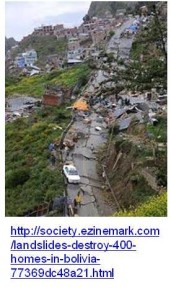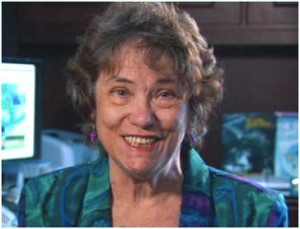 Deale, Maryland – FEBRUARY 2011 | Dr. Sharon LeDuc, retired Deputy Director of the National Oceanic and Atmospheric Administration’s (NOAA) National Climatic Data Center (NCDC), visited Bolivia’s national meteorological service on February 18, 2011 on behalf of the International Environmental Data Rescue Organization (IEDRO). Dr. LeDuc gave a presentation stressing how historic weather date can be used to reduce deaths and injuries from extreme natural environmental events
Deale, Maryland – FEBRUARY 2011 | Dr. Sharon LeDuc, retired Deputy Director of the National Oceanic and Atmospheric Administration’s (NOAA) National Climatic Data Center (NCDC), visited Bolivia’s national meteorological service on February 18, 2011 on behalf of the International Environmental Data Rescue Organization (IEDRO). Dr. LeDuc gave a presentation stressing how historic weather date can be used to reduce deaths and injuries from extreme natural environmental events
The Bolivian Meteorological Society and IEDRO worked together to create a strong new cooperation between IEDRO and the meteorological service, aimed at helping to provide critical digitized data for the country’s needs. Roles and responsibilities between the Society and IEDRO were established for the purpose of data rescue work and which allow IEDRO to supply Bolivia’s climate data to NOAA for the use of scientists worldwide.
 Climate data rescue efforts are of vital important to developing nations, such as Bolivia. In 2007, severe flooding killed dozens and affected 72,000 families, forcing President Evo Morales to declare a state of emergency. Last year, heavy rains and floods threatened the livelihoods of 24,000 families,destroying houses and crops, and killing livestock. Rescuing climate data helps scientists develop more accurate climate models that will allow governments to better prepare for extreme weather conditions and avoid unnecessary devastation and loss of human lives.
Climate data rescue efforts are of vital important to developing nations, such as Bolivia. In 2007, severe flooding killed dozens and affected 72,000 families, forcing President Evo Morales to declare a state of emergency. Last year, heavy rains and floods threatened the livelihoods of 24,000 families,destroying houses and crops, and killing livestock. Rescuing climate data helps scientists develop more accurate climate models that will allow governments to better prepare for extreme weather conditions and avoid unnecessary devastation and loss of human lives.
 Dr. Sharon LeDuc, who retired as the Deputy Director of NOAA’s NCDC in November 2010, has received sterling acclaim for her environmental work over the course of her distinguished career, including two Gold Medals from the Department of Commerce and a NOAA Administrator’s award. IEDRO is proud to have her join our team.
Dr. Sharon LeDuc, who retired as the Deputy Director of NOAA’s NCDC in November 2010, has received sterling acclaim for her environmental work over the course of her distinguished career, including two Gold Medals from the Department of Commerce and a NOAA Administrator’s award. IEDRO is proud to have her join our team.
IEDRO is a US-based, 501(c)(3) nonprofit organization that rescues and digitizes historic weather observations throughout the world. Our efforts are supported and endorsed by the NOAA, the World Meteorological Organization and other international groups concerned with the preservation and digitization of this valuable data.
Only with accurate information about the past can we make the necessary preparations for the future. With historic weather data we can conduct climate change research, forecast the spread of disease, and improve flood forecasting. Rescuing historic environmental data can do more to prevent human suffering and death than any other endeavor in the 21st century.

Comments are closed.